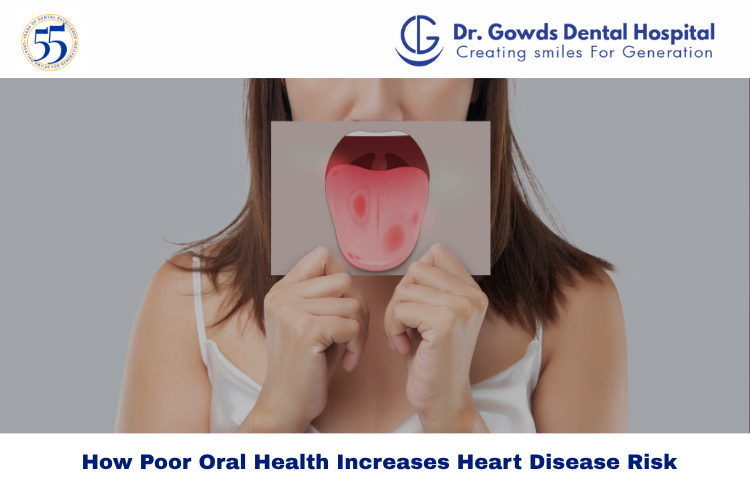Schedule Appointment



Your heart and mouth—two vital parts of your body—may seem unrelated at first glance. But did you know that poor oral health can contribute to heart disease? It might sound surprising, but the connection between your gums and heart health is more significant than you think. In this blog, we’ll explore how oral health impacts cardiovascular disease, why gum disease should never be ignored, and what you can do to protect both your heart and mouth.
For years, research has shown a potential link between gum disease and heart disease. While the exact mechanism isn’t fully understood, scientists believe that bacteria from gum infections can enter your bloodstream, leading to inflammation throughout the body. This chronic inflammation is one of the leading contributors to cardiovascular disease.
The two conditions often go hand in hand because both are linked to inflammation. When your gums are infected with harmful bacteria, it can trigger a systemic inflammatory response, which may contribute to the narrowing of arteries—a key factor in heart disease.
Gum disease (also known as periodontal disease) doesn’t just affect your smile. It can be a serious threat to your heart health. Here’s how it happens:
Both gum disease and heart disease can develop silently over time, with few obvious signs. Here are some symptoms of gum disease that might also signal an increased risk for heart disease:
If you’re experiencing any of these symptoms, it’s essential to take action quickly. Early treatment can help you avoid complications that affect not just your teeth but your overall cardiovascular health.
The good news is that you can take control of both your heart and oral health by following a few simple but effective practices:
If you notice any of the following signs, it’s time to see a dentist or heart specialist:
Maintaining a healthy mouth is not just about a bright smile—it’s about protecting your heart. The connection between oral hygiene and heart disease is more than just a theory; it’s a critical factor in your overall health. By practicing good oral hygiene, getting regular dental checkups, and making heart-healthy lifestyle choices, you can reduce your risk of both gum disease and cardiovascular issues.
Remember, your heart and your smile are interconnected, and taking care of one will help take care of the other.
Book an appointment and Visit us –
Yes, research suggests that bacteria from infected gums can enter the bloodstream, leading to inflammation in the arteries, which is a risk factor for heart disease.
Symptoms such as bleeding gums, persistent bad breath, swollen gums, and tooth loss can indicate gum disease, which may contribute to heart disease risk.
Gum disease can trigger inflammation that spreads through the bloodstream, potentially leading to atherosclerosis (plaque buildup in arteries), which increases the risk of heart attacks and strokes.
Practicing good oral hygiene, visiting the dentist regularly, quitting smoking, maintaining a healthy diet, and staying active can help protect both your heart and gums.
Yes, it’s important to consult with a dentist to treat gum disease early and with a heart specialist if you experience symptoms like chest pain or discomfort, as it could indicate heart issues.